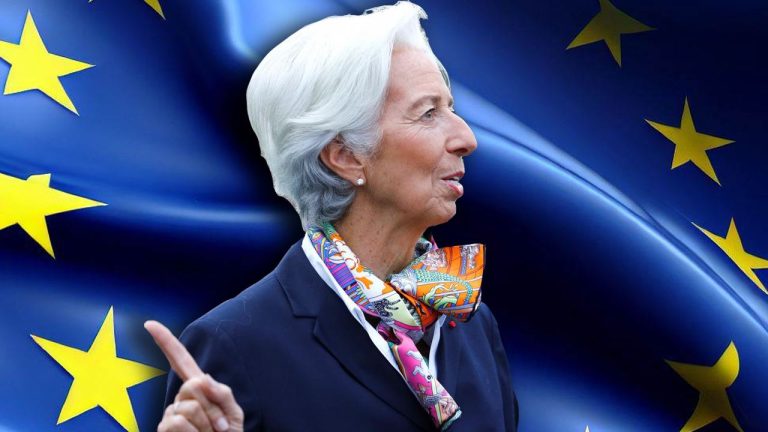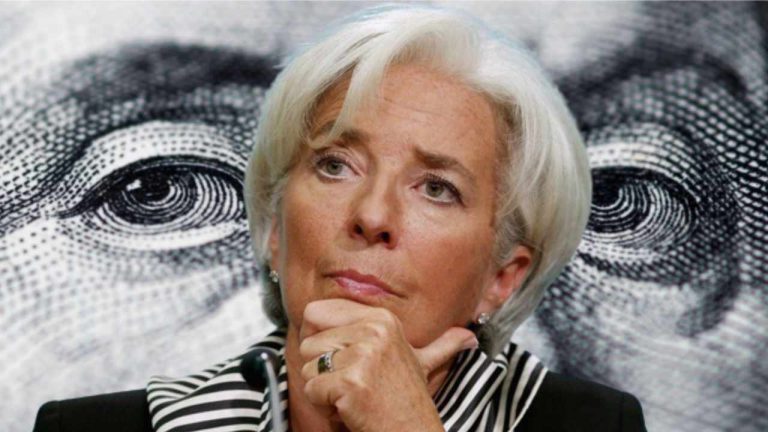
The European Commission has proposed a legislative plan for the launch of a new digital euro payments system, one that it says will not replace the use of physical cash. In a new announcement, the Commission says that it acknowledges that the use of physical cash is still preferred by the majority of Europeans, but […]
The post Digital Euro System Now Underway in Europe, EU Commission Says It ‘Won’t Replace Cash’ appeared first on The Daily Hodl.

An executive at the European Central Bank (ECB) is sounding off against digital assets, saying that the nascent asset class is dangerous and offers no benefit to society. Speaking at a panel about the future of crypto assets during the 22nd Bank for International Settlements Annual Conference, Fabio Panetta, a member of the ECB’s executive […]
The post European Central Bank Executive Calls Crypto ‘Deleterious,’ Says Asset Class Has No Societal Benefits appeared first on The Daily Hodl.

According to Fabio Panetta, the volatility of crypto and aspects of blockchain technology made digital assets only suitable for gambling.
Fabio Panetta, an executive board member of the European Central Bank (ECB), has suggested a dark future for cryptocurrencies, in which the digital assets may be used for little more than gambling among investors.
In written remarks for a panel at the Bank for International Settlements Annual Conference on June 23, Panetta said crypto’s perception among investors as a “robust store of value” began to dissipate in late 2021 and into 2022, when the total market capitalization fell by more than $1 trillion. According to the ECB official, the “highly volatile” nature of crypto assets made them suitable for gambling, and should be treated as such by global lawmakers.
“Due to their limitations, cryptos have not developed into a form of finance that is innovative and robust, but have instead morphed into one that is deleterious,” said Panetta. “The crypto ecosystem is riddled with market failures and negative externalities, and it is bound to experience further market disruptions unless proper regulatory safeguards are put in place.”
He added:
“Policymakers should be wary of supporting an industry that has so far produced no societal benefits and is increasingly trying to integrate into the traditional financial system, both to acquire legitimacy as part of that system and to piggyback on it.”
Crypto has relied on constantly creating new narratives to attract new investors, but has failed to deliver on its promises. Policymakers should be wary of supporting an industry that has so far produced no benefits for society.
— European Central Bank (@ecb) June 23, 2023
Read the speech https://t.co/okum8fH3qf
1/3 pic.twitter.com/40OlefVExB
Panetta claimed the “security, scalability and decentralisation” of crypto transactions was “not achievable”, saying the immutability of blockchains as a negative aspect of the space due to transactions often being unable to be reversed. He cited the collapse of FTX as well as a recent lawsuit brought by the United States Securities and Exchange Commission again Binance as “fundamental shortcomings” of the ecosystem.
Related: CZ addresses reasons behind Binance's recent FUD
“Crypto enthusiasts would do well to remember that new technology does not make financial risk disappear,” said the ECB official. “It is like pressing a balloon on one side: it will change in shape until it pops on the other side. And if the balloon is full of hot air, it may rise for a while but will burst in the end.”
Panetta has previously backed parts of the ECB’s plans for a potential digital euro, currently being researched by the central bank. He has also proposed banning crypto assets with an “excessive ecological footprint” as part of efforts to address risks to the environment.
Magazine: Crypto critics: Can FUD ever be useful?

François Villeroy de Galhau tried to soft sell the proposed euro CBDC to commercial bankers, emphasizing collaboration and the CBDC’s advantages.
The digital euro holds something in store for every stakeholder, Governor of the Banque de France François Villeroy de Galhau told commercial bankers on June 22. Disintermediation is not in the works, he said at the Global Official Institutions Conference hosted by French multinational bank BNP Paribas.
Before addressing the euro central bank digital currency (CBDC), Villeroy de Galhau began with an explanation of why the banking crisis earlier this year did not affect the eurozone. He credited European regulation and supervision for keeping its banking system safe. He noted, however, that the acquisition of Credit Suisse by UBS “raised new questions” about reliable crisis resolution. “The framework for the ECB to provide ‘Eurosystem resolution liquidity’ has yet to be built,” he said.
Related: France on the verge of passing stringent crypto firm licensing laws
Villeroy de Galhau’s tone became more cajoling as he pivoted to the “less consensual ground” of the digital euro. He asked rhetorically, “As everything is becoming digital, why should central bank money be the only thing to remain in paper?”
️ François Villeroy de Galhau : "Notre engagement est de ramener l’#inflation à 2% d’ici fin 2025, qui est la bonne température de l’#économie, comme 37° est la bonne température du corps". pic.twitter.com/SEdiuedj8u
— Banque de France (@banquedefrance) June 15, 2023
“The e-euro will be a digital banknote, or ‘Cash+,’” he continued. Its use will be optional, but it will have the advantage of allowing the use of central bank money in e-commerce. Without it, a crisis of trust would arise “sooner or later.” But the digital euro will not lead to disintermediation, according to Villeroy de Galhau, as:
“We central banks have absolutely no intention to open private accounts.”
Wholesale CBDC is also a joint undertaking, Villeroy de Galhau said. Commercial and central banks share the goals of “fostering tokenised finance and tokenised securities; facilitating cross-border interoperability.” Not only would the digital euro not be a competitor to commercial bank money, it will help resist “giving ground to so called ‘stablecoins’ probably issued by non-European players.” In fact:
“It’s very probably our duty to issue a CBDC, but it’s our will to issue it with you, commercial banks, and not against you.”
The digital euro would be rolled out gradually beginning in 2027 or 2028, if approved by the European Central Bank Governing Council, Villeroy de Galhau said.
Magazine: Bitcoin in Senegal: Why is this African country using BTC?

The European Central Bank exercise looked at a variety of use cases, most of which were quite satisfactory, as well as the use of self-custodied wallets.
The European Central Bank (ECB) has published a summary of the results of its digital euro central bank digital currency prototyping exercise. The exercise investigated offline use of a simulated digital euro and four other instances of interoperability with existing payments systems.
The project was part of the second phase of Eurosystem preparations for a potential pilot launch of a digital euro in the fall of this year. The exercise ran from July 2022 to February 2023.
Eurosystem developed a centralized settlement engine for the exercise called N€XT that used an unspent transaction output (UTXO) data model. Five prototype customer interfaces that represented differing use cases were provided by private companies. Self-custody wallets were also trialed.
The UXTO model preserved customer privacy using one-time UTXO addresses that did not reveal the wallets holding them. User experience was identical for custodied and non-custodied wallets.
Related: Samsung to research South Korea’s CBDC for offline payments
The offline transactions use case was more problematic. Seeking to gain “more in-depth knowledge of how the combination of hardware and software protocol could avoid double spending and ensure settlement finality and non-repudiation,” the report concluded:
“Questions remain as to whether the existing technology is capable of delivering, in the short to medium term (five to seven years), a production-ready and secure offline solution.”
Nonetheless, the exercise showed that “online and offline digital euro prototypes can be interoperable even if based on different data models and technical designs.”
Simultaneously with the exercise summary, the ECB published a “Market Research Outcome Report” on the digital euro. It also found that offline “solutions compliant with the Eurosystem requirements would be novel and might create uncertainty when an offline solution might be ready.”
I’m honoured to have @EU_Commission President Ursula @vonderleyen with us here in Frankfurt as we mark the ECB’s first quarter of a century.
— Christine Lagarde (@Lagarde) May 24, 2023
Let’s keep working together for a united and peaceful Europe. pic.twitter.com/6smP7soWxX
Survey respondents favored near-field communication, Bluetooth interfaces or QR codes for offline transactions. The market research addressed 12 highly technical aspects of a potential digital euro rollout, such as proxy lookup and dedicated cash account management.
Magazine: When privacy is a privilege: Ontology’s Jun Li on blockchain-based digital ID
 Consumers in the euro area have sharply raised their expectations about inflation in the coming months, the European Central Bank revealed. Survey data showing this comes after the monetary authority slowed the pace of its rate hikes last week while indicating that it’s still early for a pause. ECB Registers Heightened Consumer Expectations About Inflation […]
Consumers in the euro area have sharply raised their expectations about inflation in the coming months, the European Central Bank revealed. Survey data showing this comes after the monetary authority slowed the pace of its rate hikes last week while indicating that it’s still early for a pause. ECB Registers Heightened Consumer Expectations About Inflation […] The European Central Bank (ECB) raised its key interest rates by 25 basis points, slowing the pace from previous increases. However, as inflation in the euro area remains persistently high, future rate hikes may still be expected with the regulator insisting it will continue to seek a “timely return” to its 2% inflation target and […]
The European Central Bank (ECB) raised its key interest rates by 25 basis points, slowing the pace from previous increases. However, as inflation in the euro area remains persistently high, future rate hikes may still be expected with the regulator insisting it will continue to seek a “timely return” to its 2% inflation target and […] Current indicators suggest the European Central Bank (ECB) should raise the interest rate in May, the monetary authority’s chief economist said. Future increases will depend on the economic data but this is still not the right time to stop, according to Philip Lane who believes the bank has to bring inflation back to the 2% […]
Current indicators suggest the European Central Bank (ECB) should raise the interest rate in May, the monetary authority’s chief economist said. Future increases will depend on the economic data but this is still not the right time to stop, according to Philip Lane who believes the bank has to bring inflation back to the 2% […] Fabio Panetta, a member of the executive board of the European Central Bank (ECB), announced the digital euro project was entering its final phase. Before the committee on economic and monetary affairs of the European Parliament, Panetta stated that the digital euro, if approved, would be focused on making payments easier for Europeans. ECB’s Panetta […]
Fabio Panetta, a member of the executive board of the European Central Bank (ECB), announced the digital euro project was entering its final phase. Before the committee on economic and monetary affairs of the European Parliament, Panetta stated that the digital euro, if approved, would be focused on making payments easier for Europeans. ECB’s Panetta […] European Central Bank (ECB) President Christine Lagarde has warned that the U.S. dollar’s reserve currency status “should no longer be taken for granted.” Acknowledging de-dollarization efforts by various countries, she stressed: “New trade patterns may have ramifications for payments and international currency reserves.” ECB’s Christine Lagarde on De-Dollarization and Alternative Currencies The president of the […]
European Central Bank (ECB) President Christine Lagarde has warned that the U.S. dollar’s reserve currency status “should no longer be taken for granted.” Acknowledging de-dollarization efforts by various countries, she stressed: “New trade patterns may have ramifications for payments and international currency reserves.” ECB’s Christine Lagarde on De-Dollarization and Alternative Currencies The president of the […]